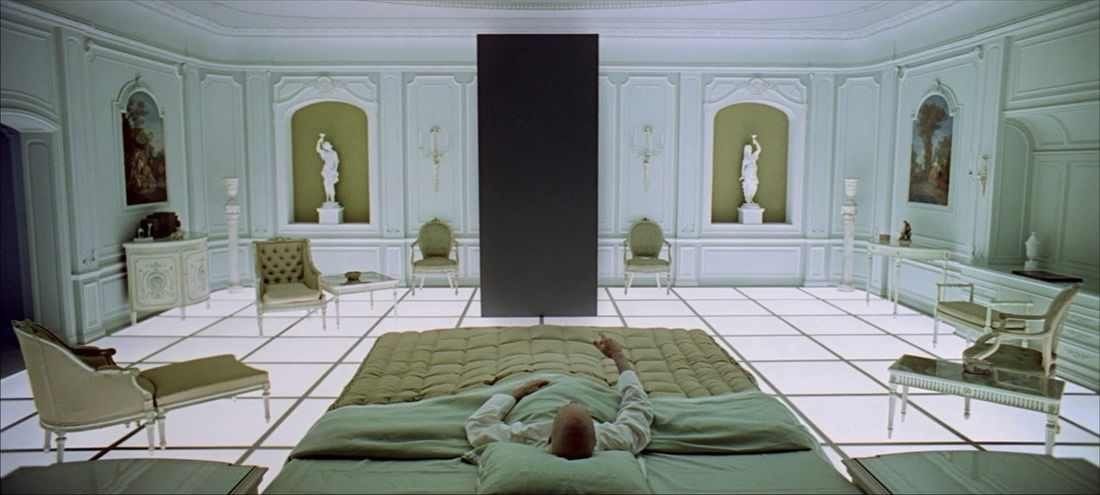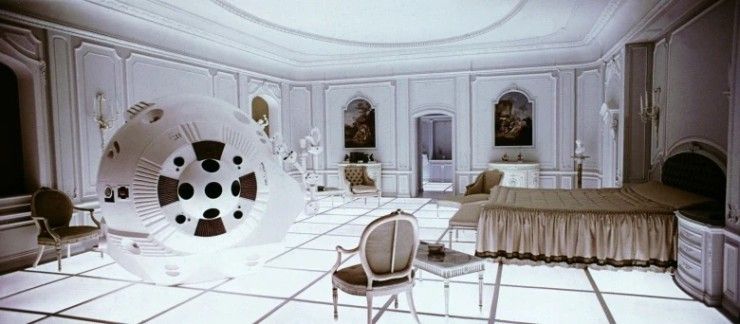
We all have our own interpretation of the ending of the director's magnum opus, but what does the ending of 2001: A Space Odyssey mean to Stanley Kubrick?
There are some filmmakers who would rather leave the meaning of their films up to the audience to interpret than explain what the filmmaker is trying to say. Stanley Kubrick was one of the directors, opting to challenge audiences at every level.
He didn’t subscribe to one single interpretation of his work, telling Playboy magazine in 1968, “You’re free to speculate as you wish about the philosophical and allegorical meaning of the film—and such speculation is one indication that it has succeeded in gripping the audience at a deeper level—but I don’t want to spell out a verbal road map for 2001 that every viewer will feel obligated to pursue."
However, Kubrick contradicted this belief in 1980, when he talked to filmmaker Jun’ichi Yao in a documentary that was never released. A clip, uploaded to YouTube by internet champ, is from the documentary that features a telephone conversation in which the late director reveals his intentions behind the ending of 2001: A Space Odyssey.
During the telephone interview, Jun’ichi Yao asked, “People are wondering, what is the meaning of the last scene… could you give us answers?”
Kubrick responded to Yao’s question regarding the final scene in 2001, where the protagonist Dave Bowman lies in bed, saying, “I tried to avoid doing this ever since the picture came out because when you just say the ideas they sound foolish, whereas if they’re dramatized one feels it.”
The director continues, adding, “The idea was supposed to be that he is taken in by god-like entities, creatures of pure energy and intelligence with no shape or form and they put him in what I suppose you could describe as a human zoo to study him, and his whole life passes from that point on in that room and he has no sense of time, it just seems to happen as it does in the film.”
To elaborate on this concept, Kubrick notes that the room was a very deliberately inaccurate replica of French architecture to show that the entities had some idea of what Dave would find comforting and familiar like humans do to animals in zoos.

Concluding his comments about the film’s ending, Kubrick says, "When they get finished with him, as happens in so many myths of all cultures in the world, he is transformed into some know of superbeing and sent back to Earth. It is the pattern of a great deal of mythology, that was what we were trying to suggest.”
2001: A Space Odyssey is a film with so many visceral and emotional moments that the experience of watching the film matters a bit more than the contents of the story. It’s a subjective experience that muses on life, death, rebirth, and existentialism. It is one of the greatest sci-fi epics in cinema history, and the ending is truly up to your interpretation.
That being said, it is nice to know what Kubrick’s intentions were with his film's ending.
What do you think of Kubrick’s intentions behind the ending of 2001: A Space Odyssey? Let us know in the comments!
Your Comment
7 Comments
Every time I see this film I’m astounded by how good it is. Even the goddam monkey costumes are great.
His explanation doesn’t cheapen the magical surrealness of the ending.
December 31, 2022 at 4:48AM
If you want to understand better what is happening in "2001, A Space Odyssey," just read the Arthur C Clarke book of the same name, which was written concurrently with the production of the film. Kubrick and Clarke worked together on the story, and, while there isn't 100% match of the plots of book and the film, they are very, very close. The ending of the film is much more understandable after reading the book. In the phone interview, Kubrick is just briefly relating what is spelled out in the book.
Great book, awesome film.
December 31, 2022 at 9:00AM
The movie stopped about a half page before the book did. Stanley didn't quite finish the story.
January 5, 2023 at 7:53PM
Being a fan of "Slaughterhouse-Five", I interpreted the ending exactly as that.
December 31, 2022 at 10:45PM, Edited December 31, 10:48PM
I like the explanation, would love to read an interpretation of the ending YouTube channel wailinburnin, anti-film BARK version 20110222.
January 1, 2023 at 3:40AM
I thought of the ending as a non-linear experience of time. The idea that time does not exist and everything is actually happening at once. Also that there is no true death, only change, transformation & rebirth. The universe may only be a small speck more easily traversed than humans believe. Life and all that exists are constructs of each individual's mind. I didn't think too much about the room he was in. I just believed it and let it be what it is--a space where one individual exists, like our mind. Do we think too much? Maybe. But isn't it fun?
January 3, 2023 at 7:25AM